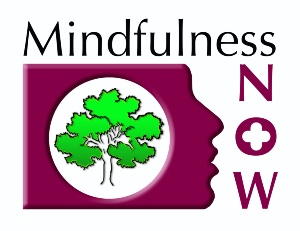Mental stress affects your body
Many people don’t realise the extent their bodies respond to thoughts and emotions in physical ways.
Consider this, How many times can you think of, when having felt stressed for some time, you’ve then gone down with a cold or stomach or gut related issues?
The usual rout to dealing with unwelcome physical symptoms is to reach for pills and potions, which may or may not cure the malaise. However, do you ever spend time reflecting on whether what’s going on in your mind might be the root cause of your suffering?
There is much scientific evidence about mind, body connection that shows clearly how closely both are aligned. There is so much ‘out there’ at the moment, encouraging us to connect more with our minds to lower suffering, but we need to realise that focussing on connecting with our body is just as important.
When you experience stress and anxiety in your mind this is also reflected in your physical body. Just how the body reacts to stress is different for different people. One person’s physical reaction to stress and anxiety might be to experience a headache, another to experience a tightness in their chest, or aching shoulders or back, or even an upset stomach.
Now, if you don’t appreciate/admit you are suffering from stress but are experiencing from unexplained physical symptoms what would you do? Would you immediately jump to the conclusion “oh, I must be stressed” or would you just reach for a ‘cure’ for the unwelcome physical sensations without giving much attention to noticing what’s going on in your mind ‘right now’?
What can often be going on, in situations where you experience physical discomfort, is that the body is vocalising the ‘ouch’ of your mind. You could be spending too much time worrying about what might happen in the future or reminating over what happened in the past, without really being aware of it bcause ‘negativity’ has become a habit. Before you think there must be something wrong with you, negative thoughts are part of the human condition and the vast majority of us are all hard-wired, by default, to experience negative reactions to thoughts and emotions rather than positive ones.
Blame our ancestry for evolving as ‘fight or flight’ animals when we needed to be constantly on the look out for danger and had to spend a lot of time evading animals hunting us for their lunch!

Tune into yourself
In my role as a Mindfulness Teacher I tend to spend a fair amount of time, in the early stages of training, helping people understand and appreciate the benefits of connecting with their body as much as with their mind.
There is much wellbeing value in developing ‘noticing’ skills to tune-in to what happens internally when you are, for example, relaxed, stressed, angry, irritated or anxious. Being able to recognise what’s going on physically in your body can be really useful to help you stand back a bit from what’s going on ‘right now’, instead of being carried along with a response that’s rooted in habit.
Being able to gain grater insight and wisdom into how your mind works and influences your reaction to thoughts, emotions, and situations can be a game-changer. Practicing Mindfulness not only boosts mind, body connection but over time can help you replace existing negative response habits with new, more enlightened and positive ones.


The mind is more powerful than you might think
There is hard scientific evidence proving that thoughts and emotions can affect the physical body, positively and negatively! Cultivating better connection with your physical body is a good way to be able to monitor the state of your mental health.
You may think you’re doing fine right now, usng the “mind over matter” technique to deal with things. But if you become more sensitive to your physical body, through Mindfulness practice, you will become more aware that physical symptoms of pain or discomfort could in fact be indicators that all is not so well in your mind.
Greater insight into mind, body connection will likely lead you along the path of willingness to reflect on what might be going on in your mind that’s linked to physical symptoms of pain or discomfort.
Engaging with a course of Mindfulness Training can help you develop greater awareness to what’s going on with you, right now in the present moment, providing insights that can ultimately help you live a more connected and fulfilling life.
Mindfulness courses
Health issues
If the body is put under stress for prolonged periods of time it can ultimately cause serious physical issue such as Diabetes, Heart disease and a range of other stress related illnesses.
If you experiencing physical pain symptoms it is very important that you get checked out by your GP before you turn to Mindfulness as a possible ‘solution’. However, if there is no medical intervention that can address your issue then gaining techniques for gaining insight into how your mind is working might help inform ways to lower suffering you’re experiencing.
There are many short-tems solutions to reducing stress levels, which can work very well but are unlikely in the medium/long term to ‘sort’ the issue. Mindfulness is something you need to embrace fully and should not be seen as a ‘quick fix’ for when you are in discomfort.
Mindfulness is about training the brain to develop new neural pathways, creating new ways of thinking and helping you develop new perspectives to improve your life experience.
Here’s a short list of some physical issues that can be associated with being stressed.
- Back pain
- Stiff neck and/or shoulders
- Headaches
- Loss of appetite
- Weight gain
- Sleep issues
- Increased heart rate
- Shortness of breath
- Gastrointestinal issues
- Fatigue
- Lack of motication
- High blood pressure
Mindfulness training can definitely help reduce stress in your life, but it does take time, practice and cultivating of intentions to want to want to practice a little every day, as if your life depended on it…







